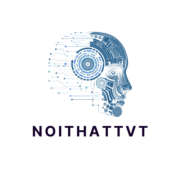In today’s tech-savvy world, becoming a digital citizen is as easy as buying a new gadget. Gone are the days when you needed a PhD in computer science to navigate the online realm. Now, all it takes is a shiny new device and a sprinkle of curiosity. Whether it’s a smartphone, tablet, or laptop, these tools unlock a universe of possibilities, allowing anyone to connect, create, and conquer the digital landscape.
If You Want to Become a Digital Citizen, You Only Have to Buy a Piece of Technology.
Digital citizenship encompasses the responsible use of technology and the internet. Engaging online means understanding the implications of actions in a connected world. Internet access enables participation in various aspects of life, including education, commerce, and social interaction.
Modern devices, such as smartphones, tablets, and laptops, serve as gateways for individuals to become digital citizens. These gadgets facilitate communication and information sharing, making it easy for anyone with curiosity to explore. The digital landscape offers numerous opportunities to learn, connect, and create.
Social media platforms, online learning resources, and e-commerce websites exemplify aspects of digital citizenship. Prioritizing safety and security online becomes essential in navigating this digital realm. Awareness of privacy settings, recognizing phishing attempts, and understanding copyright laws are vital components of responsible online behavior.
Access to technology contributes to a growing digital divide. Individuals without device access may struggle to engage fully in digital citizenship. Therefore, promoting inclusivity ensures everyone can benefit from technology. Government initiatives and community programs often work to bridge this gap.
Active participation in digital spaces fosters skills that enhance personal and professional growth. Digital literacy, critical thinking, and effective communication emerge as key competencies. Individuals can cultivate these skills through practice and exploration in online environments.
Understanding digital citizenship allows individuals to leverage technology positively. They can engage with others in meaningful ways, advocate for change, and pursue lifelong learning. Overall, the journey toward becoming a digital citizen invites continuous exploration and engagement in the evolving digital landscape.
The Role of Technology in Digital Citizenship

Technology plays a crucial role in shaping digital citizenship. Individuals engage with online services, participate in educational opportunities, and connect with communities, all through various devices.
Essential Technologies for Digital Citizenship
Smartphones, tablets, and laptops serve as gateway tools for entering the digital world. Each device offers unique capabilities that enable users to communicate, access information, and participate in civic activities. High-speed internet supports seamless connectivity, making digital engagement straightforward. Meanwhile, software applications designed for collaboration, such as video conferencing tools and social media platforms, enhance interaction. Utilization of these technologies significantly contributes to effective digital citizenship.
The Impact of Technology Accessibility
Access to technology directly influences an individual’s ability to participate in digital citizenship. Limited access creates barriers, limiting opportunities for education, employment, and social involvement. Increasingly affordable devices and internet services bridge this gap, promoting inclusion. Policies promoting universal internet access foster equitable opportunities for all. Community programs that provide technological training and resources empower underrepresented groups. Greater accessibility enhances overall civic participation, enabling informed engagement in societal issues.
The Misconception: More Than Just Technology

Becoming a digital citizen goes beyond merely owning technology. It requires essential skills and knowledge to navigate the online world responsibly.
Skills and Knowledge Required
Digital literacy stands as a fundamental skill. This involves understanding how to effectively search for, evaluate, and use information found online. Critical thinking also plays a crucial role. It helps individuals discern reliable sources from misinformation. Furthermore, effective communication enhances one’s ability to engage in discussions across different platforms. Engagement in online communities fosters collaboration and empathy, nurturing a more connected digital environment. With the right knowledge and skills, individuals can utilize technology for personal growth and societal impact.
Community Engagement and Support
Community engagement significantly contributes to successful digital citizenship. Local organizations often facilitate training programs that offer tech education. These initiatives empower individuals who lack access to resources. Networking with others in community forums opens doors to support and shared learning experiences. Collaborative projects extend opportunities to develop practical skills and foster relationships. Support networks enhance resilience in navigating the digital landscape, ensuring everyone feels included and capable of contributing.
Benefits of Being a Digital Citizen
Being a digital citizen enhances access to information and educational resources. Engagement with online courses, webinars, and tutorials offers opportunities to learn and grow.
Improved communication skills emerge through social media platforms and digital forums. Participants can connect with peers, mentors, and experts across the globe.
Increased participation in civic activities becomes possible through digital platforms. Online petitions, social movements, and community initiatives enable individuals to advocate for change.
Enhanced career prospects result from digital literacy. Employers value candidates who demonstrate strong technological skills and understanding of online tools.
Networking opportunities expand through digital engagement. Building relationships within professional circles fosters collaboration and opens doors to job offers and partnerships.
Empowerment of underrepresented groups occurs through access to information and resources. Digital citizenship provides tools for advocacy and amplifies minority voices in critical issues.
Security awareness strengthens through responsible online behavior. Individuals who understand privacy settings and risks can protect their personal information effectively.
Cultural exchange flourishes in digital spaces. Exposure to diverse perspectives enriches personal and professional interactions, fostering global understanding.
By embracing digital citizenship, individuals cultivate a sense of community. Belonging to online networks can foster support and engagement in shared interests and causes.
Valuable life skills develop with increased digital interaction. Critical thinking and effective communication are crucial for navigating complex information landscapes.
Digital Citizenship
Embracing digital citizenship is more than just owning a piece of technology. It’s about understanding how to navigate the online landscape responsibly and effectively. With the right tools and knowledge, anyone can engage in meaningful ways that enhance their personal and professional lives.
Access to technology opens doors to education, communication, and civic participation. However, it’s equally important to develop essential skills like digital literacy and critical thinking. By fostering a supportive community that emphasizes these skills, individuals can not only thrive in the digital world but also contribute positively to society. Digital citizenship is a journey of empowerment and growth that benefits everyone involved.

